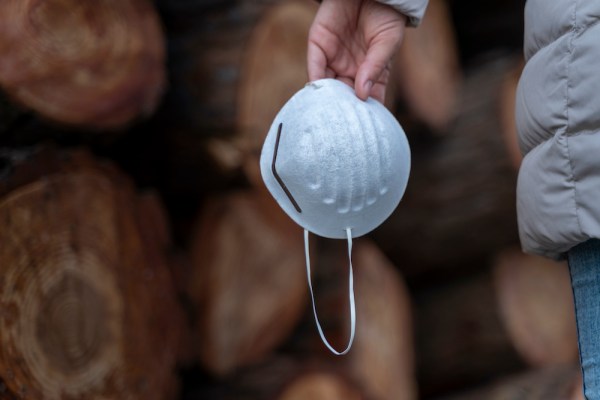I’ve been infected with the novel coronavirus for at least three weeks.
It started with my partner coughing and feeling very tired. A couple of days later, I started showing the same symptoms.
As a medical professional, he was required to get tested and I followed suit within days. We both tested positive and have been recovering at home since.
The symptoms have been up and down over the past two weeks. After the first few days, the mild cough gave way to an unrelenting one and the feeling of being tired gave way to being completely drained at all hours. My partner completely lost his sense of smell.
A week into having COVID-19, we thought we’d turned a corner, only for more symptoms to manifest. The virus had made its way to my GI tract, adding nausea and an inability to keep my head up without throwing up. Today, two weeks after the first bouts of coughing, we both feel significantly better, but continue to self-isolate as instructed.
Luckily for both of us, we have now been symptom-free for 72 hours, and the symptoms we did have were relatively mild throughout. The experience of getting tested — mandated for my partner to be able to go back to working at the hospital — could not have been easier. I showed up at the hospital and was greeted by a doctor and two nurses. They took a sample and advised me on how best to self-isolate for the next few weeks. The whole thing took less than 15 minutes, and it was only 24 hours later that I got the call confirming that I had tested positive.
My employer has been supportive throughout. They’ve connected me to support services, offered a number of leave options if I were to take time off to deal with the virus, constantly checked in on my prognosis and even sent a work-from-home toolkit complete with a giant monitor, keyboard and mouse. Throughout the self-isolation period, I have been able to work from home — a relatively seamless transition given that my job has long enabled me to work from home when needed. If I needed further healthcare, I can count on the many telehealth options available through my insurance.
What all this cemented is how incredibly fortunate I am, unlike the millions of Americans now losing their jobs. While others have been unable to get tested, my entire testing experience was painless. I have the luxury of being able to work from home. I’m quarantined with my partner and my puppy, so I haven’t gotten lonely. Because I’m still getting my paycheck, I don’t have to worry about making the next rent payment. I’m able to have grocery and takeout deliveries left at my doorstep. If I were to take a turn for the worse, a major hospital is just down the street.
This epidemic has laid bare the incredible differences in privilege within our society, including within tech. Long celebrated as representing the future of work, today thousands of gig workers have lost their main source of income, with no paycheck to count on and no option to work from home. Others, from delivery to warehouse workers, have no choice but to work, even at increased risk of contracting the disease themselves. Thousands in the Bay Area who live alone now risk being completely socially isolated as we continue to be on lockdown, while others with kids and large families now worry about taking care of their children while also working full-time jobs.
Not to mention that the homeless of our cities have no way to self-isolate even if they wanted to. Crowded homeless shelters — to the extent they were available — are no longer an option.
This is a moment where all of us in tech have to come together to help even the scales. Thousands of tech workers are already donating their time and resources, but more can be done:
- Now is the time to max out our employee match programs to make every dollar we give count more.
- Donations are needed by Frontline Foods, an effort that started in the Bay Area to provide front-line workers with food and is now scaling globally. More generally food banks are seeing an exponential rise in the demand for their services, with Second Harvest being one to flag in the Bay Area.
- If you know a co-worker with kids, offer to babysit over video for an hour or two. This can be as simple as playing a game on Houseparty together if they’re 12 or older, or helping them with a lesson their parents have found particularly hard to get through.
- A lot of us are anxious about getting the virus, so you can only imagine how the elderly and those with underlying health conditions feel. Give your grandparent a call, or donate your time and resources to organizations like Meals on Wheels to make sure they’re getting the nutrition they need to get through this.
- Many local businesses may close because of the pandemic. Support them by ordering takeout and other delivery services. If you prefer to donate directly, many cities have created funds to provide relief to impacted small businesses, like the Silicon Valley Strong Fund in San Jose.
For the foreseeable future, my only visits to the outside world will be — with mask and gloves on — to walk my dog around the corner. I’ll have plenty of time to reflect on how lucky I am, and the privilege guilt will follow. I’m guessing I’m not alone. Let’s channel our guilt into something good.
The views and opinions expressed in this post are those of the author and do not necessarily reflect the official policy or position of his employer.

